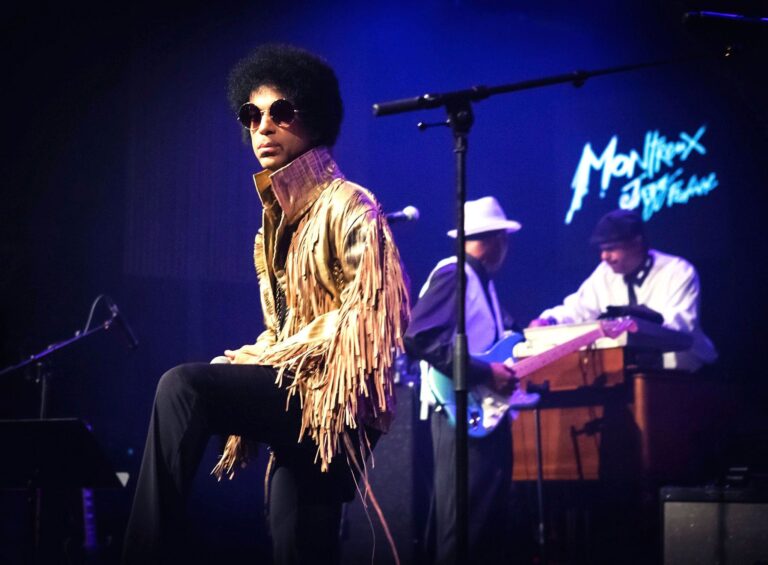Unveiling the Ultimate Playlist: Top 10 Deep Purple Songs that’ll Rock Your World!
Deep Purple, the legendary British rock band formed in Hertford, Hertfordshire in 1968, is revered as pioneers of hard rock and heavy metal music. Through the years, the band has undergone changes in its lineup, but their most iconic formation included Ian Gillan on vocals, Ritchie Blackmore on guitar, Jon Lord on keyboards, Roger Glover on bass, and Ian Paice on drums.
Deep Purple is renowned for their timeless classics like “Smoke on the Water,” “Highway Star,” and “Hush.” Their music showcases virtuosic performances, especially from Blackmore on the guitar and Lord on keyboards. The band has released numerous albums, with standout titles such as “Deep Purple in Rock” (1970), “Machine Head” (1972), and “Burn” (1974).
Over time, Deep Purple’s style evolved, incorporating elements of progressive rock, blues, and even classical music into their sound. Despite lineup changes and breaks, Deep Purple has maintained their influence in the rock music scene, inspiring generations of musicians with their dynamic and powerful sound.
Smoke on the Water
“Smoke on the Water,” released in 1972 on their album “Machine Head,” features an iconic guitar riff composed by Ritchie Blackmore. The song narrates an incident during the recording of “Machine Head” where a fire broke out at the Montreux Casino in Switzerland during a Frank Zappa concert, inspiring the lyrics. The track’s straightforward structure, coupled with its unforgettable riff, has made it a classic in rock music history.
Highway Star
Another classic from Deep Purple, “Highway Star,” released in 1972, showcases electrifying guitar solos and powerful vocals. The song’s energy is palpable from the fiery organ introduction by Jon Lord to Ritchie Blackmore’s intricate guitar work. “Highway Star” captures the thrill of speed and freedom on the open road, making it a standout in the band’s repertoire.
Child in Time
“Child in Time” from their 1970 album “Deep Purple in Rock” is a poignant and intense track characterized by haunting vocals, intense instrumentation, and evocative lyrics. The song builds towards a climax with Gillan’s iconic screams and Blackmore’s scorching guitar solos, leaving a lasting impact on listeners.
Perfect Strangers
“Perfect Strangers,” the title track from their 1984 album, marked the reunion of the classic “Mark II” lineup after an eight-year hiatus. The song blends hard rock with progressive and melodic elements, reflecting themes of reunion and introspection. The album’s success solidified Deep Purple’s place as influential rock icons.
Hush
Originally penned by Joe South, “Hush” gained widespread recognition through Deep Purple’s cover in 1968, showcasing a distinctive bassline, Hammond organ riff, and soulful vocals from Gillan. The track’s success in the US helped establish the band’s early reputation, paving the way for their future rock dominance.
Burn
The title track of their 1974 album, “Burn,” marked the band’s transition to the “Mark III” lineup. The high-energy track highlights rebellion and liberation, reflecting the tumultuous times. “Burn” continues to be one of the band’s most beloved songs, symbolizing their mid-70s magnetism.
Fireball
With driving rhythms and energetic guitar riffs, “Fireball” from their 1971 album of the same name exemplifies their signature hard rock sound. The song’s fast tempo and intense instrumental sections solidify its status as a Deep Purple staple.
Space Truckin’
Featured on their “Machine Head” album, “Space Truckin’” captivates with its catchy guitar riff and science fiction-inspired lyrics. The song’s upbeat tempo and imaginative narrative have made it a fan favorite, embodying the essence of hard rock.
Woman from Tokyo
“Woman from Tokyo” from their 1973 album “Who Do We Think We Are” combines catchy riffs, melodic structure, and Gillan’s distinctive vocals. The track’s popularity showcases Deep Purple’s ability to marry hard rock with melodious undertones, standing the test of time as a fan favorite.
Soldier of Fortune
“Soldier of Fortune” from their 1974 album “Stormbringer” deviates from their hard rock roots to offer a poignant ballad. The track’s haunting melody and emotive lyrics resonate with fans, embodying a more introspective side of Deep Purple’s musical repertoire.







